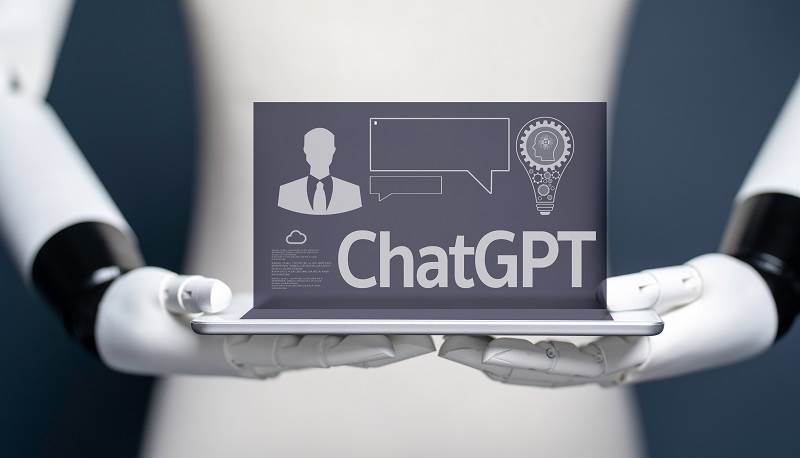
Revolutionary advancements are a rarity, but Generative AI is one such breakthrough that promises to impact all of us.
The ChatGPT revolution is happening right before our eyes and while any person with the internet can sign up to use the various services, those companies that can harness its awesome capabilities by putting the power of AI in the hands of non-technical users to automate tasks and improve efficiencies will change their business for the better.
One common use case for AI that we are all familiar with is the intelligent assistant. Chatbots have become the first point of contact for many companies who hope to lessen the burden placed on customer service reps and lower the cost of resolving each interaction. Chatbots can answer common, mundane questions and save humans for more complex issues.
This is in fact how consumers want to interact. One survey from Harvard Business Review reports a 38% increase in customer service call hold times and another poll demonstrated that 65% of customers prefer self-service support for simple matters.
Using chatbots for customer service has proven benefits to organizations, too: increased customer satisfaction and NPS scores, reduced operating costs, and for CSRs themselves, job satisfaction increased and turnover rates lowered when a trusted bot is used as part of their job.
While helpful, chatbots still suffer from issues that can frustrate customers:
- Limited Understanding: Most bots struggle to comprehend user input. They rely on keyword matching and a few pre-defined rules which can lead to inadequate responses.
- Lack of Flexibility: Traditional chatbots are restricted to pre-defined conversation flows, leading to responses that sound artificial.
- Poor Natural Language Processing (NLP): This makes it challenging for them to understand user intent, asking follow up questions to ambiguous queries, or process language nuances like sarcasm.
- Limited Personalization: They may not have access to user-specific data or lack the ability to tailor responses based on individual preferences, resulting in generic interactions.
- Inability to Learn: Most chatbots lack the ability to learn from previous interactions and improve their responses over time. They operate based on static rules and do not adjust their behavior based on user input.
These limitations can lead to disappointing user experiences, greatly reduced customer satisfaction, and missed business opportunities. However, integrating ChatGPT with chat bots addresses these issues by leveraging its advanced language understanding, conversational skills, context awareness, and continuous learning capabilities. This enables chatbots to provide more engaging, personalized, and effective interactions with users.
Integrating ChatGPT into a chatbot infrastructure will produce a multitude of benefits. ChatGPT can enhance the capabilities of chatbots in several ways:
- Improved Natural Language Understanding: ChatGPT's advanced language processing abilities enable it to better understand and interpret user queries, leading to more accurate and context-aware responses. This enhances the overall user experience and reduces the frustration of customers interacting with the chatbot.
- Enhanced Conversational Skills: By leveraging ChatGPT's conversational abilities, chatbots can engage in more dynamic and natural conversations with users. They can provide personalized recommendations, answer complex queries, and handle nuanced interactions, resulting in a more human-like and satisfying customer experience.
- Continuous Learning and Improvement: ChatGPT can be fine-tuned and trained on specific company data, allowing it to learn from past interactions and adapt to evolving customer needs. This enables chatbots to continually improve their responses, accuracy, and effectiveness over time.
- Scalability and Availability: ChatGPT's integration can enable chatbots to handle a higher volume of concurrent conversations, ensuring prompt and efficient customer service. Additionally, it offers the potential for 24/7 availability, allowing customers to receive support and information at any time, improving customer satisfaction and loyalty.
LRS offers a powerful family of cognitive agents that are integrated with ChatGPT. Based on industry or use case, they provide exceptional customer and employee experiences, and intelligent business processes. If you are interested in learning more about how LRS can help you change your business, please contact us to request a meeting.
By incorporating ChatGPT into your chatbot ecosystem, you can unleash the power of cognitive agents for more intelligent, dynamic, and customer-centric interactions, ultimately leading to improved customer satisfaction, increased operational efficiency, and better business outcomes.
About the Author
Steve Cavolick is a Senior Solution Architect with LRS IT Solutions. With over 20 years of experience in enterprise business analytics and information management, Steve is 100% focused on helping customers find value in their data to drive better business outcomes. Using technologies from best-of-breed vendors, he has created solutions for the retail, telco, manufacturing, distribution, financial services, gaming, and insurance industries.